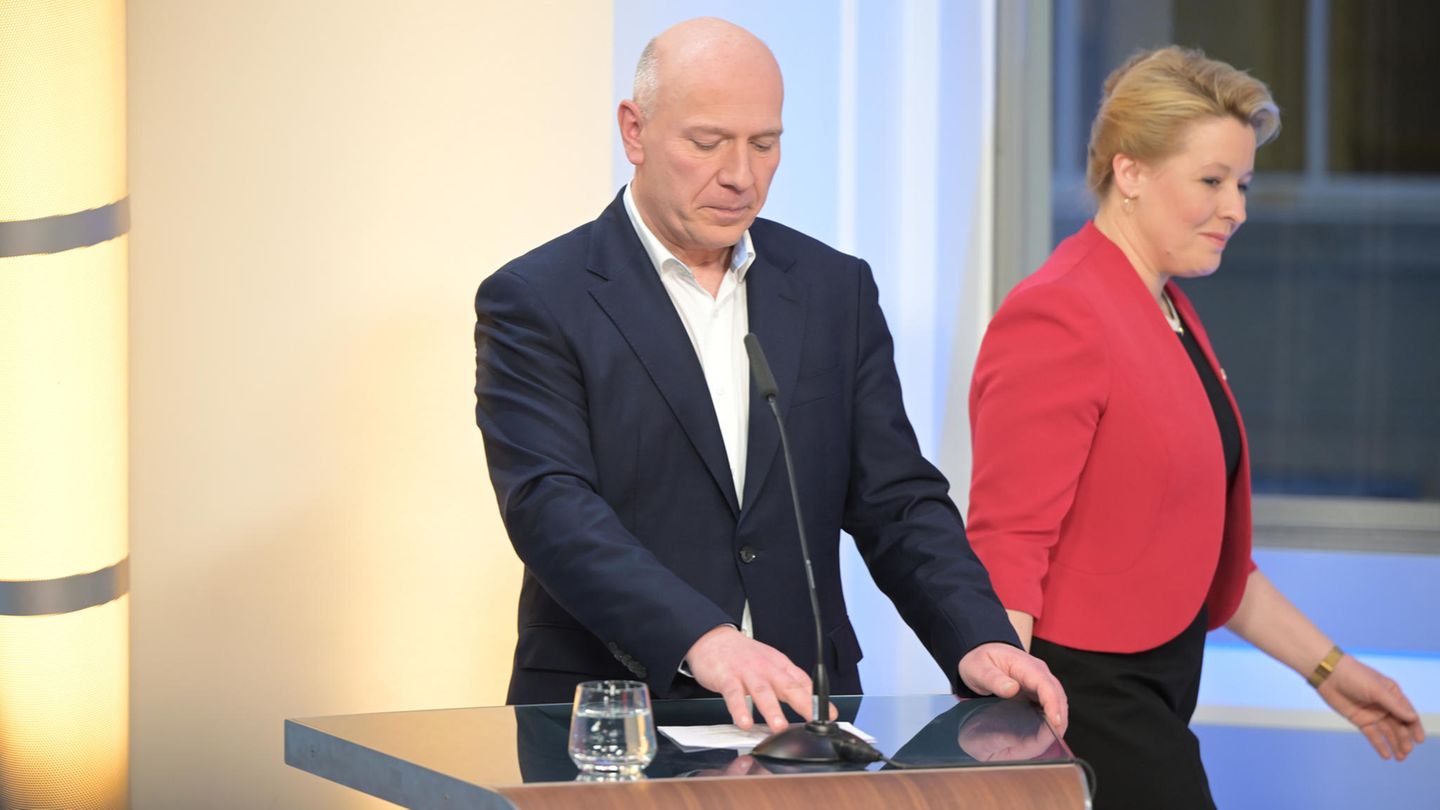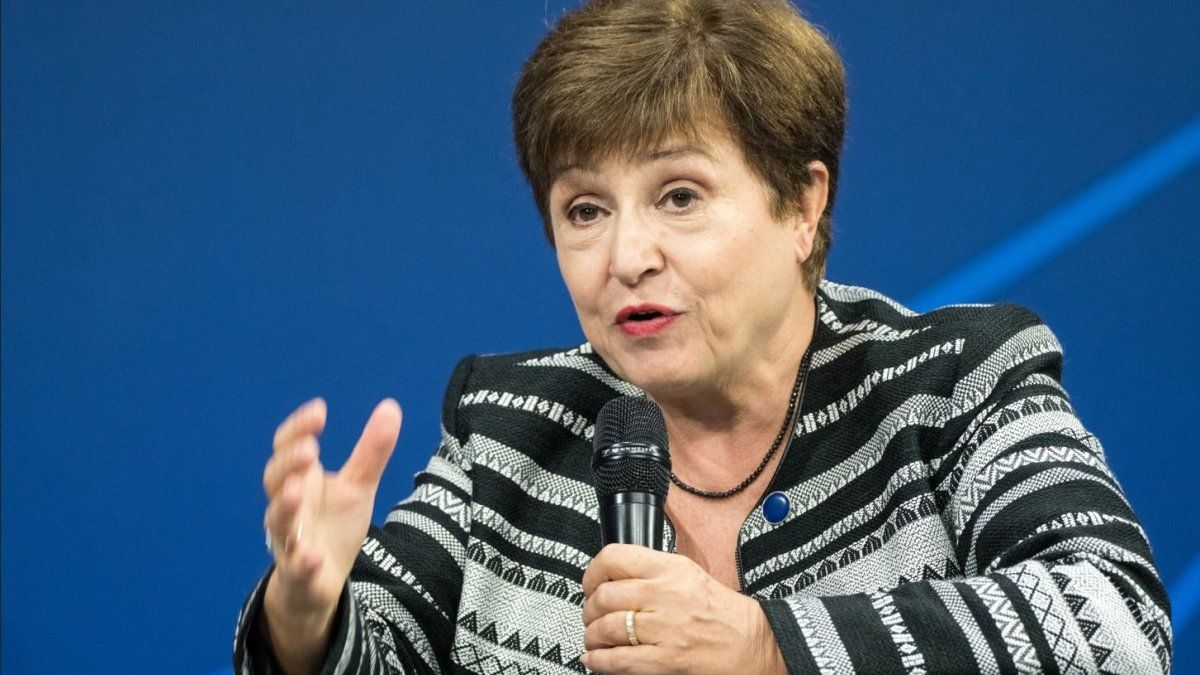The CDU celebrates its greatest success in Berlin for more than twenty years. But whether she will also lead the government remains to be seen. The SPD, the Greens and the Left could throw a spanner in the works. The FDP has to take another electoral defeat.
Triumph for the CDU, historic defeat for the SPD, and farewell from another state parliament for the FDP: According to projections by ARD and ZDF, the Christian Democrats with lead candidate Kai Wegner are ahead by a wide margin in the elections in Berlin. The SPD of Prime Minister Franziska Giffey crashes and is in a close race with the Greens for second place. The AfD is growing and is certainly represented again in the House of Representatives, the FDP is narrowly eliminated.
As the strongest force, the CDU claimed the right to form a government under its leadership. A two-party alliance with either the SPD or the Greens would be possible. But the SPD, the Greens and the Left could also continue their previous coalition.
The CDU is ten percent ahead
According to the projections, the CDU gains almost ten percentage points in the repeat election and comes to 27.9 to 28.0 percent (2021: 18.0 percent). The Greens land at 18.2 to 18.6 percent (18.9). The SPD is also at 18.2 to 18.6 percent (21.4). The left slips to 12.2 to 12.3 percent (14.1). The AfD, on the other hand, gains 9.1 to 9.3 percent of the vote (8.0). The FDP loses significantly and fails at 4.6 to 4.7 percent at the five percent hurdle (7.1).
The CDU would therefore have 47 to 50 seats, the Greens 32 to 33 and the SPD 32 seats. The left would get 21 to 22 seats, the AfD 15 to 17.
CDU top candidate Wegner spoke of a “phenomenal” success and said: “Our job is to form a stable government.” Berlin chose the change. He announced that he would invite the SPD and the Greens to explore. The CDU federal chairman Friedrich Merz wrote on Twitter: “The clear government mandate for the CDU is the first step towards our goal of making the federal capital work better.”
Franziska Giffey wants to remain in government
Giffey recognized the CDU victory. Voters wanted “things to be different”. Your goal remains to remain in government. “If we have an opportunity to lead a government alliance under SPD leadership, then we will also try to organize a stable political majority for it.” SPD federal chairwoman Saskia Esken agreed: “What the result already shows is that a governing coalition under Franziska Giffey and the SPD, with the participation of the SPD, is possible.”
The Greens’ top candidate Bettina Jarasch spoke out in favor of continuing the coalition with the SPD and the left. “The current governing coalition has a clear and stable majority,” she said on ARD.
A new edition of red-green-red would be a challenge to Wegner, who has now led the CDU forward again. The 50-year-old was born in Berlin, is married, has three children and lives in the Spandau district. The Hertha BSC fan is little known outside of the city.
Bettina Jarasch stands for the turnaround in traffic
The 44-year-old SPD state leader, who grew up east of Berlin, was mayor in the Neukölln district and rose to become federal family minister in 2018. Giffey resigned from the cabinet in May 2021 because of a plagiarism scandal surrounding her doctoral thesis.
Should the Greens become the second strongest party, the 54-year-old senator for the environment, Jarasch, has the option of becoming the first Greens head of government in Berlin and replacing Giffey. Born in Augsburg, she stands for a traffic turnaround away from combustion cars and an ambitious fight against global warming – which reduces the political intersection with the FDP and CDU.
The success of the Berlin CDU should give the federal party and its chairman Merz a boost, because this year there are three state elections in Bremen, Hesse and Bavaria. The result is a setback for the SPD in the federal government, because Giffey could lose her position as head of government in Berlin. The federal FDP has to cope with being thrown out of a state parliament again after a series of sensitive election defeats.
Everything went smoothly with this election
Due to serious election glitches, the state constitutional court had declared the election of the state parliament in September 2021 and the district elections invalid – and ordered a repetition. At that time, long queues in front of polling stations and missing, mixed up or copied ballot papers made headlines nationwide. Everything went smoothly on this election Sunday, as Berlin’s state returning officer Stephan Bröchler said: “I’m very pleased that everything went well this time.”
Around 2.4 million people were entitled to vote in the House of Representatives. According to the projections, voter turnout was between 63.5 and 65.0 percent. In 2021 it was 75.4 percent, but the Bundestag was also elected that year.
In addition to rent and transport policy, the major topic of the short election campaign was a sharp debate about New Year’s Eve, when rioters attacked the police and rescue workers.
Source: Stern
I have been working in the news industry for over 6 years, first as a reporter and now as an editor. I have covered politics extensively, and my work has appeared in major newspapers and online news outlets around the world. In addition to my writing, I also contribute regularly to 24 Hours World.




